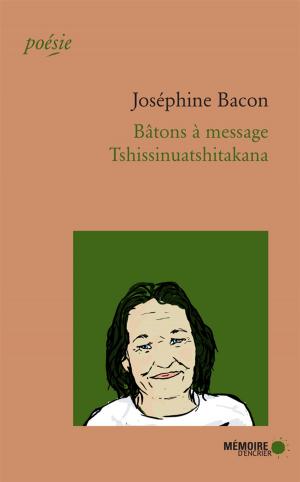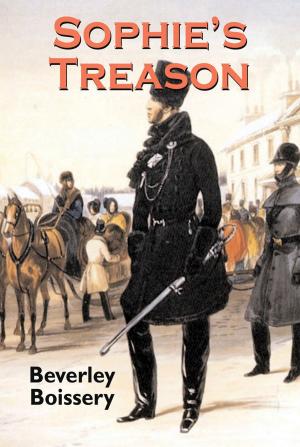| Author: | Maria J. McIntosh | ISBN: | 1230000232290 |
| Publisher: | D. APPLETON & COMPANY | Publication: | April 10, 2014 |
| Imprint: | Language: | English |
| Author: | Maria J. McIntosh |
| ISBN: | 1230000232290 |
| Publisher: | D. APPLETON & COMPANY |
| Publication: | April 10, 2014 |
| Imprint: | |
| Language: | English |
Aunt Kitty's Tales
Good morning, my young friend! A merry Christmas, or happy New Year, or at least a pleasant holiday to you;—for holiday I hope it is, as it is on such festivals, when there is no danger of lessons being forgotten, that I best love to see around me a group of happy children, all the happier for having Aunt Kitty to direct their plays—to show them the pleasantest walks, or, when they are tired both of playing and walking, to sit with them by the fireside and tell them some entertaining story. I am never however entirely without such young companions. I have always with me an orphan niece—Harriet Armand—who is about ten years old. Her father and mother died when she was quite an infant, and she has ever since been to me as my own child. Then I have another niece—Mary Mackay—just six years old, the merriest little girl on whom the sun ever shone, who, as her father lives quite near me, spends part—her mother says the largest part—of every day with me. Besides these, there are Susan May and Lucy Ellis, who, living in a neat, pretty village near us, seldom let a fine day pass without seeing Harriet and me.
I am the very intimate and confidential friend of all these little girls. To me they intrust all their secrets. I know all the pleasant surprises they intend for each other; am consulted on birth-day presents, and have helped them out of many troubles, which, though they might seem little to larger people, were to them very serious affairs. I encourage them to tell me, not only what they say and do, but what they think and feel. Sometimes when they are a little fretful and discontented because their friends have not done just as they wished, we talk the matter over together, and find that they have themselves been unreasonable, and then the fretfulness is dismissed, and they try by a very pleasant manner to make amends for their hard thoughts and unjust feelings. If any one has really injured them, or been unkind to them, and I find them too angry easily to forgive it, I bid them put on their bonnets, and we go out together to look for their good-humor. Then, as we see the gay flowers, and inhale the sweet perfumes, and listen to the merry birds that hop around us, twittering and chirping, my little friends forget to be angry; and while I talk to them of the good Father in heaven, who made all these beautiful and pleasant things for his children on earth, they feel such love and thankfulness to him, that it seems easy for his sake even to forgive those who have done them wrong. These are Aunt Kitty's lessons,—they are lessons for the heart, and such as I hope all my readers will be pleased to learn.
The walk which these little girls and I best love is to a small house, about half a mile from mine. Small as it is, it looks so pleasantly with its white walls, (it is freshly whitewashed every spring,) and green shutters, its neat paling and pretty flower-garden, peeping from the midst of green trees, that any one might be contented to live there. In this house lives a widow, with one only child, a daughter, a year older than my niece Harriet. I will tell you their story, which I think will make you feel almost as much interested in them as we do, and you will then understand why we like them so well, and visit them so often.
About three years ago, my little friends, Susan May and Lucy Ellis, began to talk a great deal of a child who had lately come to the school in the village, which they attended. They said her name was Alice Scott; that her teachers thought a great deal of her because she learned her lessons so well, and that her schoolmates loved her because she was so good-humored and merry. She had told them that she used to live a great way off, and that her father and mother had left her other home because it was sickly, and had come here because they had heard it was a healthy place. The girls said Alice looked very well herself, but that Mrs. Scott was pale, and that Alice said she was often sick. "A stranger and sick," thought I, "then I must go to see her"—and so I did, very soon.
Aunt Kitty's Tales
Good morning, my young friend! A merry Christmas, or happy New Year, or at least a pleasant holiday to you;—for holiday I hope it is, as it is on such festivals, when there is no danger of lessons being forgotten, that I best love to see around me a group of happy children, all the happier for having Aunt Kitty to direct their plays—to show them the pleasantest walks, or, when they are tired both of playing and walking, to sit with them by the fireside and tell them some entertaining story. I am never however entirely without such young companions. I have always with me an orphan niece—Harriet Armand—who is about ten years old. Her father and mother died when she was quite an infant, and she has ever since been to me as my own child. Then I have another niece—Mary Mackay—just six years old, the merriest little girl on whom the sun ever shone, who, as her father lives quite near me, spends part—her mother says the largest part—of every day with me. Besides these, there are Susan May and Lucy Ellis, who, living in a neat, pretty village near us, seldom let a fine day pass without seeing Harriet and me.
I am the very intimate and confidential friend of all these little girls. To me they intrust all their secrets. I know all the pleasant surprises they intend for each other; am consulted on birth-day presents, and have helped them out of many troubles, which, though they might seem little to larger people, were to them very serious affairs. I encourage them to tell me, not only what they say and do, but what they think and feel. Sometimes when they are a little fretful and discontented because their friends have not done just as they wished, we talk the matter over together, and find that they have themselves been unreasonable, and then the fretfulness is dismissed, and they try by a very pleasant manner to make amends for their hard thoughts and unjust feelings. If any one has really injured them, or been unkind to them, and I find them too angry easily to forgive it, I bid them put on their bonnets, and we go out together to look for their good-humor. Then, as we see the gay flowers, and inhale the sweet perfumes, and listen to the merry birds that hop around us, twittering and chirping, my little friends forget to be angry; and while I talk to them of the good Father in heaven, who made all these beautiful and pleasant things for his children on earth, they feel such love and thankfulness to him, that it seems easy for his sake even to forgive those who have done them wrong. These are Aunt Kitty's lessons,—they are lessons for the heart, and such as I hope all my readers will be pleased to learn.
The walk which these little girls and I best love is to a small house, about half a mile from mine. Small as it is, it looks so pleasantly with its white walls, (it is freshly whitewashed every spring,) and green shutters, its neat paling and pretty flower-garden, peeping from the midst of green trees, that any one might be contented to live there. In this house lives a widow, with one only child, a daughter, a year older than my niece Harriet. I will tell you their story, which I think will make you feel almost as much interested in them as we do, and you will then understand why we like them so well, and visit them so often.
About three years ago, my little friends, Susan May and Lucy Ellis, began to talk a great deal of a child who had lately come to the school in the village, which they attended. They said her name was Alice Scott; that her teachers thought a great deal of her because she learned her lessons so well, and that her schoolmates loved her because she was so good-humored and merry. She had told them that she used to live a great way off, and that her father and mother had left her other home because it was sickly, and had come here because they had heard it was a healthy place. The girls said Alice looked very well herself, but that Mrs. Scott was pale, and that Alice said she was often sick. "A stranger and sick," thought I, "then I must go to see her"—and so I did, very soon.















